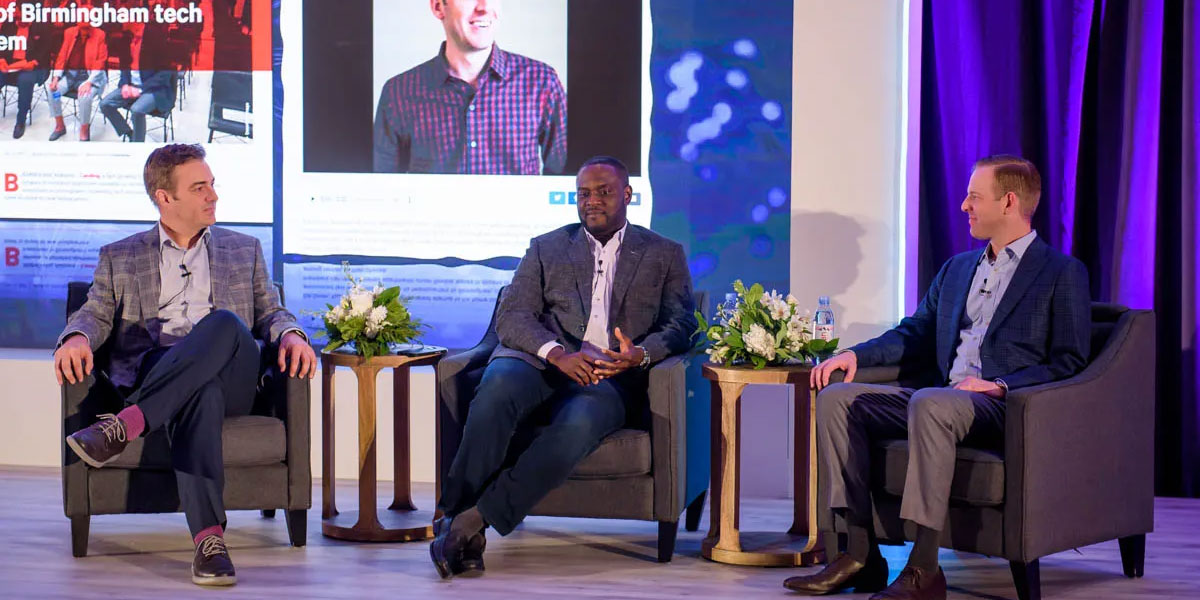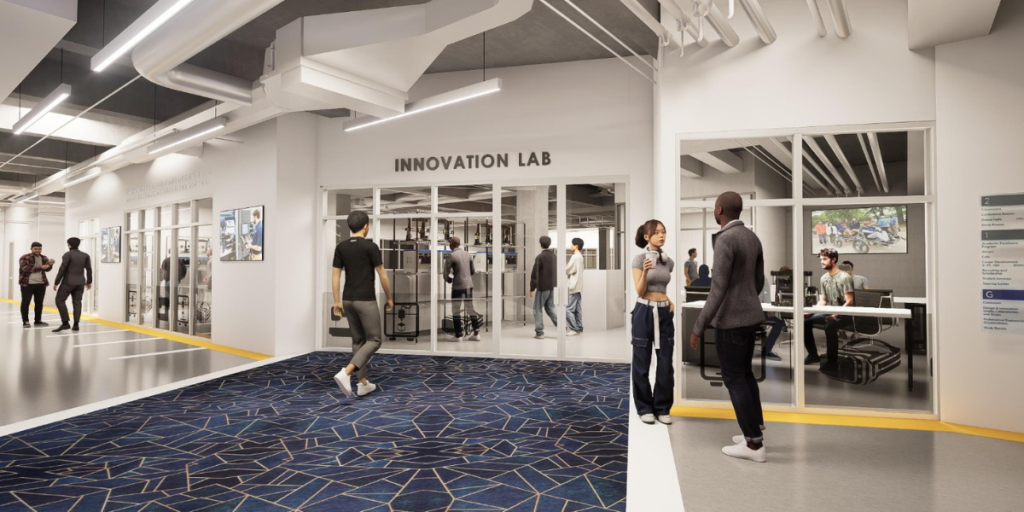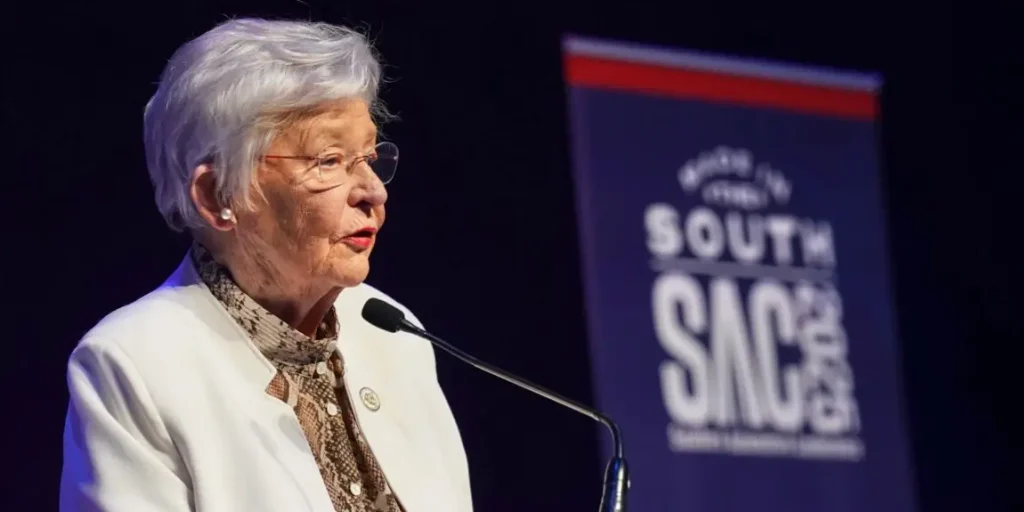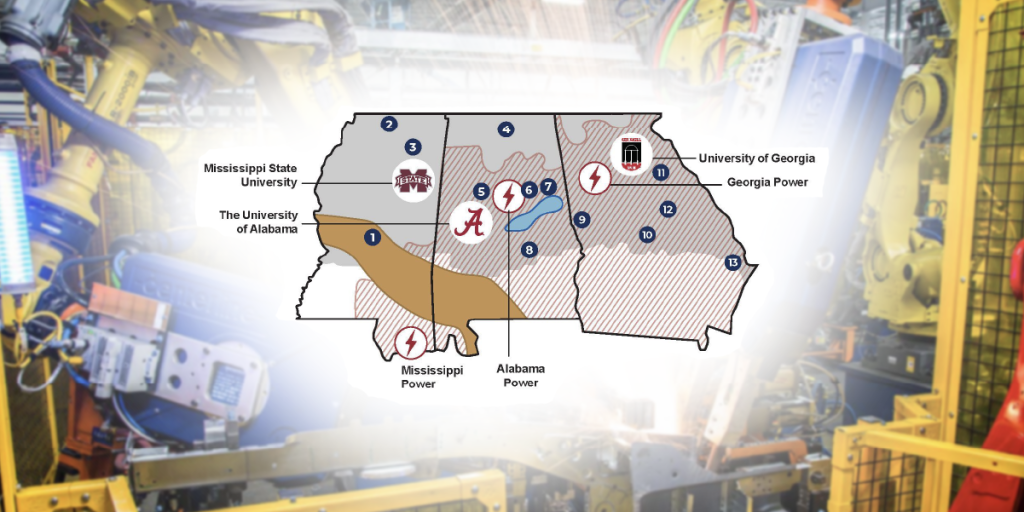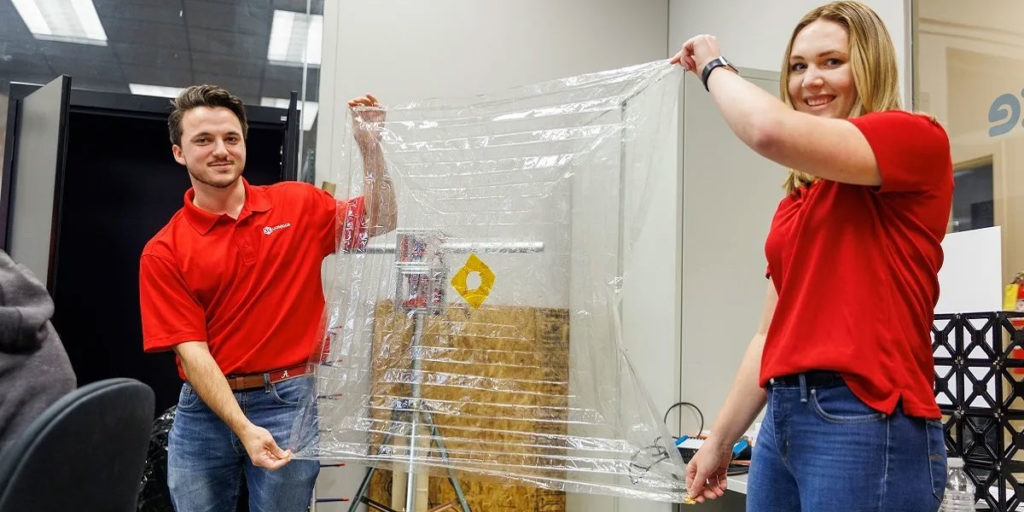How can Alabama create economic growth?
Dozens of leaders from across Alabama’s public and private sectors gathered recently to discuss that and other economic development issues during the Innovate Alabama Symposium hosted by the state’s new Alabama Innovation Corporation.
Nate Schmidt, managing director of the Techstars Alabama EnergyTech Accelerator, led a panel discussion about creating success in the 21st century with Shegun Otulana, founder and managing partner of Harmony Venture Labs, and Bill Smith, founder and CEO of Landing.
“How do we get from just being excited about innovation to doing work that would hold up in any community?” Schmidt asked. “There are a few things that get us there, but the one thing that you need is big exits. That is what you need to make that jump and that is why I’m excited to share the stage today with Bill and Shegun who have done exactly that for our community, who have dared to dream not in the millions but in the billions.”
Discussing ways to grow Alabama from Alabama NewsCenter on Vimeo.
Startup funding and workforce development dominated the discussion. Smith said marketing Alabama’s quality of life assets gives the state a big advantage in recruitment efforts.
“The thing that is unique about Birmingham is that it is such a great place to bring people to live,” Smith said. “We’ve recruited 75 people to move to Birmingham in the last few months and one of the the things that has worked in our favor is that some of this senior talent is actually looking to have a better life but they also want to be a part of something that is high growth. In a lot of places it’s hard to have that.
“The other thing I love about our state is that you have so much support from the community and from people in the government side,” Smith added. “When you bring all of these parties together who are rooting for your success, that is not typical.”
Alabama’s strengths were well-documented last October when Stanford University‘s Hoover Institution, a public policy think tank promoting the principles of individual, economic and political freedom, delivered to the Alabama Innovation Commission (AIC) a set of growth ideas and policy recommendations.
The group, led by Alabama native Condoleezza Rice, partnered with the commission in 2020 to conduct data-driven research and assess how Alabama’s educational, legal, financial, governance and physical aspects can be revamped to create a favorable entrepreneurial environment.
Its research found Alabama already possesses two key assets to achieving its growth goals: important innovation hubs and a large number of dedicated and hardworking people in public service, universities, K-12 education, nonprofit organizations and the private sector, all of whom are determined to build a more prosperous future for their fellow Alabamians.
“In our experience, this is an exceedingly rare asset,” the report stated. “One which has no market price.”
Otulana agreed, adding that talent recruitment needs to start at a younger age.
“You need to think about talent recruitment as student recruitment,” Otulana said. “It is very hard for you to find any successful ecosystem where the pipeline is not the higher institutions in that ecosystem, so I think we should put a lot of energy into attracting young people into our higher institutions, way more than the energy to bring people in that are not here already: We should still do that, too, but over the long term a winning strategy is to actually use our universities as our recruitment pipeline.”
So how does Alabama improve its global reputation? The AIC’s October report to Gov. Kay Ivey outlined a number of ways, including expansion of the state’s outdoor recreation industry; identifying and supporting opportunities to fuel entrepreneurial development at every stage of business growth; recruiting and retaining a workforce with the skills, knowledge and credentials necessary to create innovation ecosystems throughout the state; and fostering an environment that increases commercialization activities, research and development efforts and supports the state’s economy. Otulana said encouraging the flow of capital and connecting meaningful people to startups will breed a culture of success.
“There are lots of things moving in our favor,” Otulana said. “As we build more companies and bring in more capital, you will find the talent will generally follow because the talent follows the money. Therefore, if you can either raise a lot of money or give people a way to think there is equal reward for the kind of talent they bring to the table, you’ll get more people to move to where they think the action is.”
Smith agreed, adding everyone needs to understand the growing pains almost every startup experiences.
“Success is not just this perfect line up and to the right,” Smith said. “You have to be prepared for things not to start well for companies you may support or provide backing to. It’s a long game.”
(Courtesy of Alabama NewsCenter)




